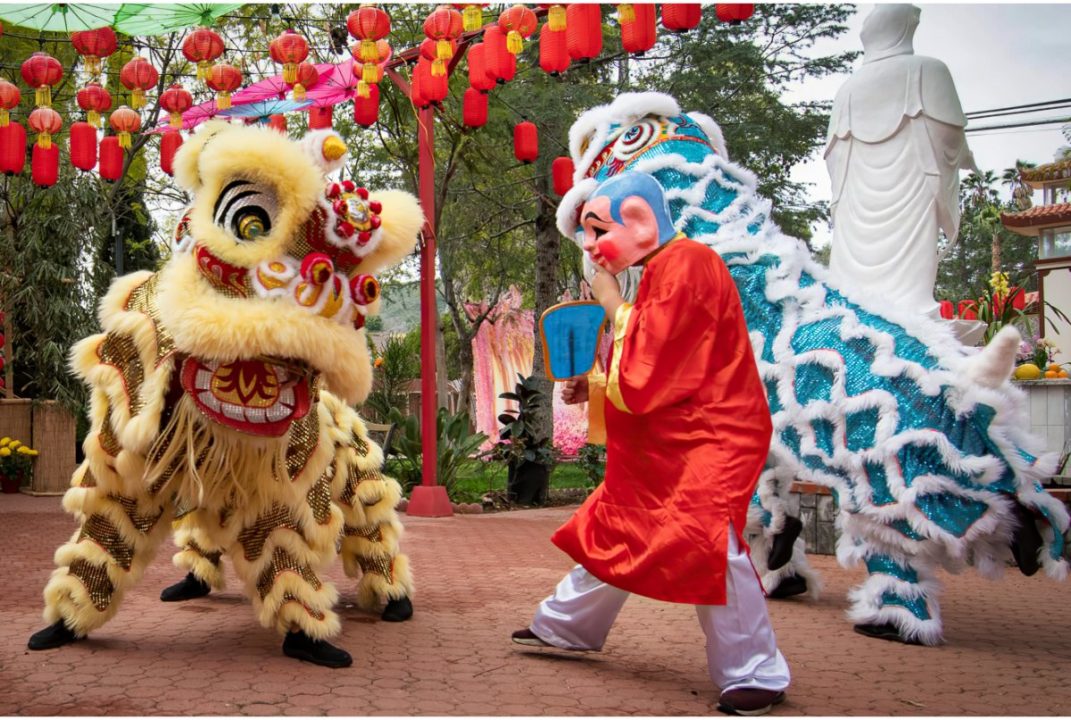To have the power to control winds and storms is a force to be reckoned with. At a young age, Tam Kung (譚公 Tam Gung in Cantonese), also known as Tam Tai Sin (譚大仙 Tam Dai Sin in Cantonese), had this magical prowess and used it towards great deeds to the benefit of his community.
He thus earned the name Lord Tam, the Sea God, and became a revered deity, especially among fishermen. His birthday is celebrated to this day on the eighth day of the fourth lunar month. This year, it falls on 23 May 2023, in which many people amass in a boisterous affair.
Who is Tam Kung?
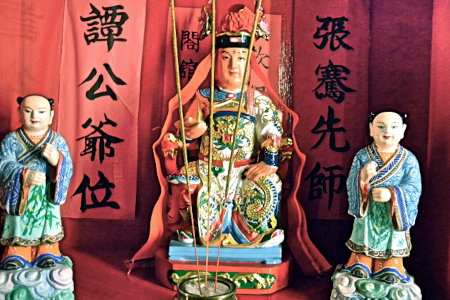
Tam Kung was just a young boy in ancient China when he discovered his ability to control the wind and rain. While not much is known about the historical person’s upbringing, we do know that Tam Kung hailed from the Guangdong Province. His power allowed him to essentially predict the weather, which earned him great recognition from coastal communities as a sea deity across Hong Kong and Macau.
Moreover, he had the talent to heal the sick. At the tender age of 12, Tam Kung found the secret to remaining young forever, which explains why any statue seen of him embodies an old man with the face of a boy. Some people may know him as ‘Lord Tam the Sea God’ or ‘Tam the Great Immortal’.
What is Tam Kung’s Birthday?
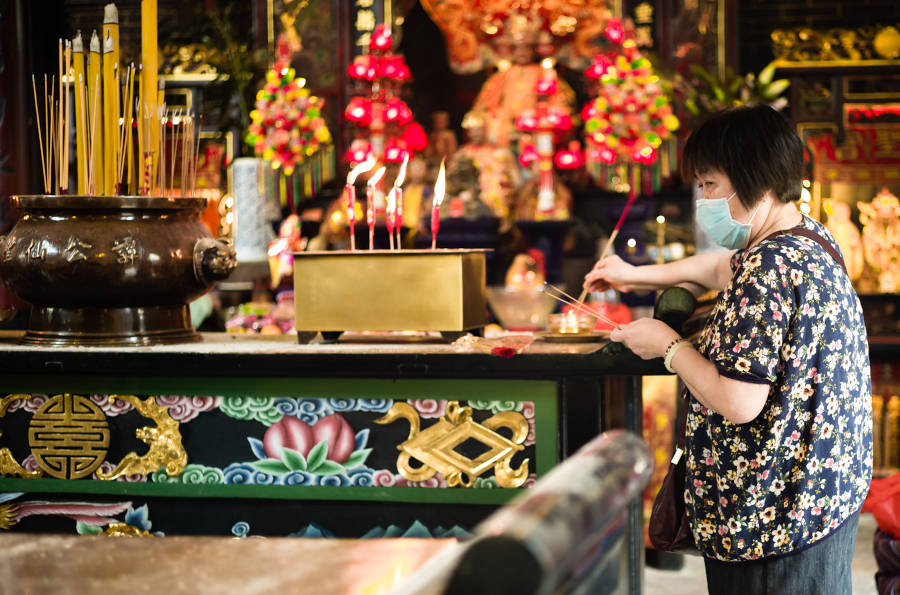
Coinciding with Buddha’s Birthday, Tam Kung’s birthday falls on 23 May 2023. This day holds cultural significance because Tam Kung is known to help the greater good of his community, especially for those living in coastal towns, when things were unpredictable and livelihood depended on such things as weather. And, to help the sick was no easy feat. Hence, celebrating Tam Kung’s birthday is a way to bring safety, good health and overall, good luck to people.
How did the celebration of Tam Kung’s Birthday start?
While Tam Kung gained recognition early on in his life and has been worshipped for centuries, it wasn’t until the Qing Dynasty (1644 – 1912) that he beaome officially deified. It was believed that he controlled the weather by throwing peas into the air to calm storms or water to trigger them.
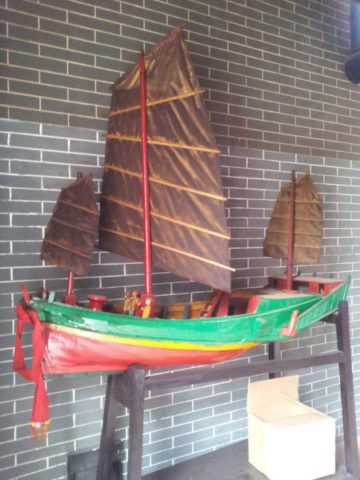
Fishing communities were Tam Kung’s biggest worshippers, hence, his popularity spread in Hong Kong, which has a long history of seadwellers and occupational fishermen. Small shrines were built in Tam Kung’s honour and celebrations were small but took a pause for a period of time. It was only in 1905, when the Tam Kung Temple in Shau Kei Wan was built, that celebrations started to take flight with a solid physical meeting point, aggrandizing over time.
As time passed, people in Hong Kong increasingly valued the cultural significance of Tam Kung, as communities use his birthday to commemorate the times they had overcome plagues and natural disasters. Celebrations on his special day of birth revived and have become one to remember.
How to celebrate Tam Kung’s Birthday?
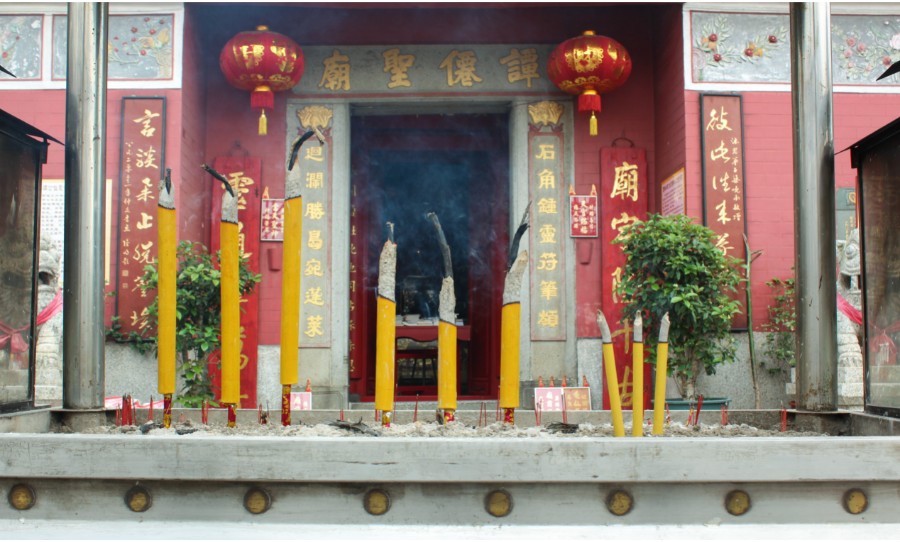
Since Tam Kung’s Birthday is on a public holiday in Hong Kong, festivities are known to be loud and clamorous. Apart from paying respect at temples filled with the cloudy, smoky incense of joss sticks, a big procession occurs on this day.
Expect the piercing sounds of drums, cymbals, and gongs revving up the day’s long affair. Worshippers head to temples, with the Tam Kung Temple in Shau Kei Wan hosting the largest celebration. Parades of lion dancers perform a mix of dancing and martial arts on the streets and fa pau, which are large floral shrines that represent good luck and protection, float in the air.
Moreover, don’t be taken aback when you see effigies of Tam Kung, or boys wearing masks masquerading as the great sea deity to amp up the atmosphere. And, if you’re lucky enough to catch it, you’ll be able to listen to a Chinese opera held in honour of Tam Kung on his birthday on temporary bamboo stages in various fishing villages around Hong Kong.
Other traditional Chinese festivals: Lunar New Year — Lunar New Year Fair — Birthday of Che Kung — Chinese Lantern Festival — Kwun Yum Treasury Opening Festival — Ching Ming Festival — Tin Hau Festival — Cheung Chau Bun Festival — Buddha’s Birthday — Birthday of Tam Kung — Dragon Boat Festival — Birthday of Kwan Tai — Qixi Festival — Hung Shing Festival — Hungry Ghost Festival — Mid-Autumn Festival — Monkey King Festival — Birthday of Confucius — Chung Yeung Festival — Winter Solstice Festival.
Header image credits: Nam Le via Canva


